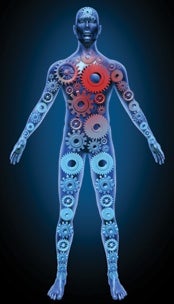 |
| Root Beer Belly from Youngevity |
This from NaturalNews.com:
Research suggests a diet rich in probiotics discourages colon cancer
Saturday, March 08, 2014 by: Carolanne Wright
Tags: probiotics, colon cancer, digestive health
(NaturalNews) Good news: If you're a fan of probiotics, another health benefit has been added to the ranks, this time concerning lowered colorectal cancer (CRC) risk. A known immune booster, probiotics also hinder harmful pathogens in the gut that can lead to cellular mutations. Not only that, certain species of beneficial bacteria form conjugated linoleic acid in the colon, which may inhibit the development of cancer through anti-inflammatory action.
Keeping the colon healthy and disease-free
According to Cancer Active, Professor Ian Rowland at the University of Ulster, a leading expert on diet and cancer prevention, notes:
"Studies using cultures of human colon cells grown in flasks show that probiotics can interfere with the action of cancer forming substances. When probiotics have been given to laboratory rats, they have decreased the level of gene damage (an important event in cancer) and reduced the numbers of tumours induced in the colon. There are only a few studies in humans because of the difficulties in studying the effects of diet on human cancer. However, in the few studies that have been done, probiotics - sometimes in combination with prebiotics - have shown effects suggesting that they may reduce the risk of colon cancer."
At a molecular level, researchers believe probiotics help discourage colon cancer by:
- Stimulating the immune system
- Producing beneficial short-chain fatty acids
- Hindering enzymatic activities linked with carcinogens
- Activating beneficial anti-carcinogenic enzymes
- Encouraging higher levels of butyric acid in the colon (an important growth regulator for colon cells)
Probiotics also bind to bile salts. Epidemiological studies have found a strong connection between CRC risk and diets that are high in certain types of fat, such as corn oil, safflower oil, lard or beef tallow.
Researchers believe this is due to increased level of bile acids, which are necessary to digest fat. When the bile is broken down in the colon, the byproducts have a cytotoxic effect on colon cells, triggering proliferation and the possibility of cancer. Probiotics help protect against this hazard in the following manner: modulation of enzymes that create harmful wastes and also by reducing the toxicity of bile salts through a binding effect.
Moreover, two types of probiotics, Lactobacillus acidophilus and Bififobacterium lactis, demonstrate antibacterial characteristics by producing lactic acid and corresponding short-chain fatty acids. When lactic acid is present, the gut environment becomes more acidic, which inhibits potentially carcinogenic bacteria. To encourage the growth of lactobacilli and bifidobacteria in the gut, make sure you are getting enough soluble fiber (examples include oats (gluten), apples, barley (gluten), flaxseed and Brussels sprouts), and consider supplementing with a prebiotic like inulin, oligofructose, fructooligosaccharides (FOS) or galactooligosaccharides (GOS).
Professor Rowland concludes:
"There is a lot of evidence from studies on cell cultures and in animals that probiotics, prebiotics and combinations of the two can exert anticancer effects. Until recently, there has been little work conducted in humans. However a paper soon to be published reports a study conducted as part of the European Union funded SYNCAN Project. In this experiment volunteers were fed a mixture of pro and prebiotics, or placebo, for eight weeks and a wide range of indicators of colon cancer risk were measured. Those subjects on the pro/prebiotics had less DNA damage and a lower rate of cell proliferation in biopsies taken from their colons. Additionally pro/prebiotic feeding resulted in improvements in certain characteristics of stool samples that may be indicative of reduced cancer risk."
Sources for this article include:
http://www.canceractive.com/cancer-active-page-link.aspx?n=1413
http://science.naturalnews.com/pubmed/19116692.html
http://science.naturalnews.com/pubmed/1435100.html
http://www.biomedcentral.com/1471-2482/12/S1/S35
About the author:
Carolanne believes if we want to see change in the world, we need to be the change. As a nutritionist, natural foods chef and wellness coach, she has encouraged others to embrace a healthy lifestyle of green living for over 13 years. Through her website www.Thrive-Living.net, she looks forward to connecting with other like-minded people who share a similar vision.
Follow on Facebook: www.facebook.com/pages/Thrive-Living/4995788...
For Pinterest fans: www.pinterest.com/thriveliving/
Find at Google+: www.goo.gl/cEZiyR
and Twitter: www.twitter.com/Thrive_Living
Read her other articles on Natural News here:
www.naturalnews.com/Author1183.html
Learn more: http://www.naturalnews.com/044227_probiotics_colon_cancer_digestive_health.html#ixzz2vSE4IDnp
We at World Health Team are pleased to offer three powerful products to help you maintain health: Youngevity, Kyani and One World Whey. Scientific data is available which indicates that the products we offer can be helpful.

Go to:
World Health Team Daily
World Health Team to order your Youngevity

No comments:
Post a Comment